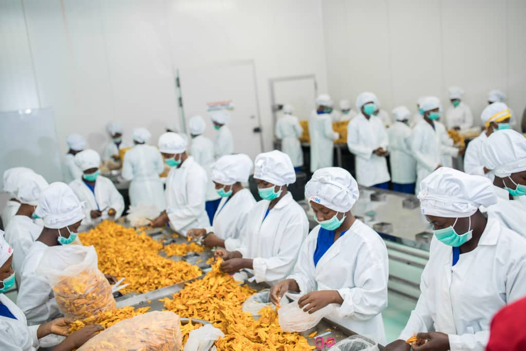The Ghana Statistical Service (GSS) in collaboration with the United Nations Development Programme (UNDP) has rolled out a Business Tracker, which is an online survey targetting businesses with the aim of assessing the socio-economic impact of COVID-19 in Ghana.
The study will also assess measures put in place by businesses to mitigate the impacts of COVID-19, as well as efforts to build better recovery for businesses and cross-border trade.
Commenting on the study, Professor Samuel Kobina Annim – the Government Statistician – noted that the roll-out of a soft-loan scheme of up to GH¢600million by government, which will have a one-year moratorium and two-year repayment period for micro, small and medium-scale businesses, is a direct response to the adverse effects of COVID-19 and its attendant policy interventions; notably the restrictions on mobility of persons. He added that despite the minimal knowledge on the pathways and extent of effects, coping strategies and preparedness of businesses to recover post COVID-19, the exigencies of ramifications from COVID-19 led to government’s policy intervention for businesses. He therefore called on businesses to participate in the survey to inform policy decisions.
“I make a clarion call to all apex bodies of businesses in Ghana – including Association of Ghana Industries, Ghana Chamber of Commerce, Business and Trade Associations, Private Enterprise Foundation and National Board for Small Scale Industries and individual businesses – to participate in the survey,” stated Prof. Annim.
Results from the survey will inform policy directions in protecting jobs and safeguarding progress of the Sustainable Development Goals (SDGs). The findings will also provide insights into keeping the promise of the African Continental Free Trade Area (AfCTA) alive as a tool to handle future pandemics and protect jobs and businesses, especially for youth and women.
“COVID-19 is not only a health problem but also a development crisis with enormous socioeconomic impacts, and for its assessment empirical data will be required to ensure recovery efforts are better directed. This is a growing partnership that we hope will make a difference in providing the much-needed data for policy options and decision-making,” stated Gita Welch, acting Resident Representative of UNDP Ghana.
The socioeconomic impact study is part of a broader partnership seeking to strengthen capacities for economic and strategic policy development in response to COVID-19. The partnership, led by the GSS, includes other government institutions, the UN system in Ghana, development partners, academia and private organisations. Other interventions of the partnership will include re-engineering SDGs’ financing architecture to protect jobs and safeguard SDGs’ progress amid COVID-19; supporting youth innovations in fighting COVID-19; and building resilience of local economies.
COVID-19 is the infectious disease caused by the most recently discovered coronavirus. It was declared a pandemic by the World Health Organisation (WHO) when it started spreading to most parts of the world. Ghana has so far recorded over 200 cases and a number of measures have been put in place to curb spread of the virus – including closure of the country’s borders with a partial lockdown in parts of the country.











